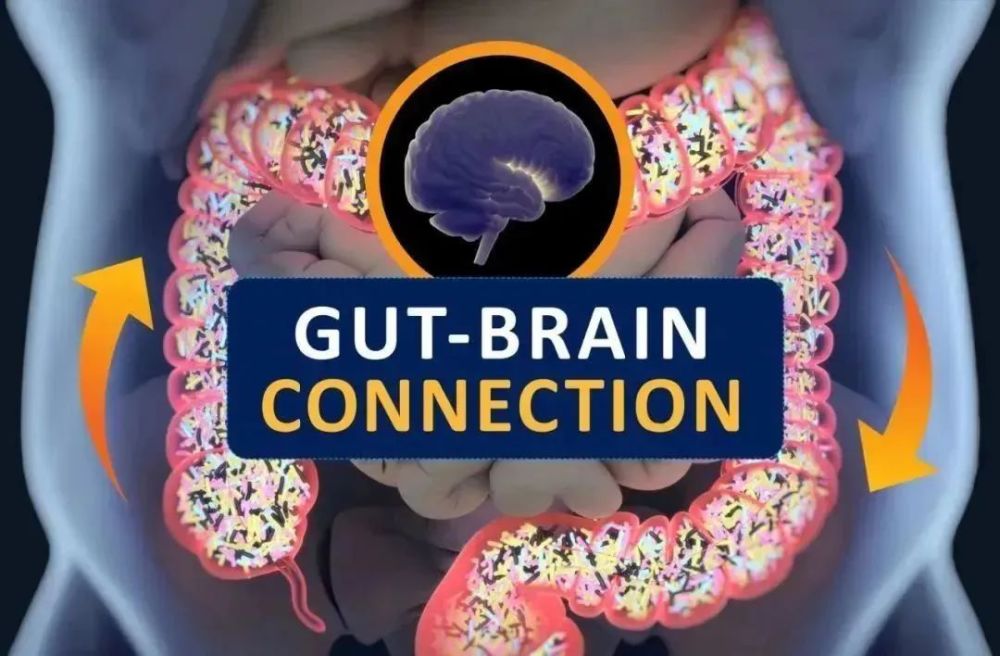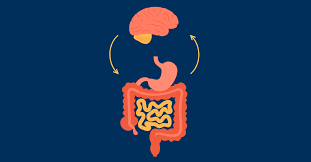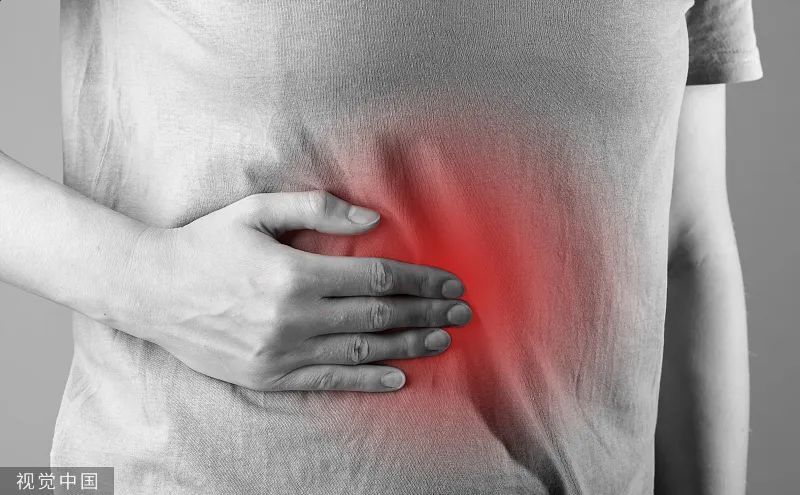生气或焦虑会导致身体产生各种不同的问题,包括消化系统的病症,其中最常见的症状之一就是胃痛。
The stress that anxiety puts on your body can lead to various different issues, including those relating to the digestive system. One of the more common symptoms is stomach pain.

肠胃为什么会对情绪敏感?
为什么生气、紧张时会胃疼(stomachache)?这是因为大脑和肠胃间存在一种“双向影响”。肠道紊乱会向大脑发送信号,大脑紊乱也会向肠道发送信号。
The brain has a direct effect on the stomach and intestines. This connection goes both ways. A troubled intestine can send signals to the brain, just as a troubled brain can send signals to the gut.
具体来说,这种双向影响与“肠-脑轴(gut-brain axis)”密切相关。“肠-脑轴”是由神经内分泌和免疫因子介导的、受心理社会因素调整的一个双相整合系统。
The gut-brain axis (GBA) consists of bidirectional communication between the central and the enteric nervous system, linking emotional and cognitive centers of the brain with peripheral intestinal functions.

图源:Harvard Health
肠神经系统 (enteric nervous system, ENS)有数百万个调节消化的神经连接,是“肠-脑轴”的关键组成部分,通常被称为“第二大脑”。它通过神经系统与大脑相连,因而当大脑发生变化时,肠神经系统也会做出相应的反应。
The enteric nervous system (ENS), a key component of the brain-gut connection, is often referred to as the "second brain." Within the ENS, you have millions of nerve connections that regulate digestion. The ENS is connected to the nervous system, which is, of course, connected to the brain. Therefore, when a change occurs in the brain, it affects the gut and vice versa.

图源:Family Medicine Austin
外源性(景象、气味等)或内感性(情绪、思维)信息通过高级中枢传出的神经冲动影响胃肠运动、分泌和炎症。同时,胃肠道系统的刺激可能会向中枢神经系统(central nervous system, CNS)发送信号,从而引发情绪变化。
Psychology combines with physical factors to cause pain and other bowel symptoms. Psychosocial factors influence the actual physiology of the gut, as well as symptoms.
事实上,肠道含有比大脑更多的血清素,它是调节情绪的神经递质。因此,一个人的肠胃不适可能是焦虑、压力或抑郁的原因或产物。
In fact, the gut contains more serotonin, which is the neurotransmitter that regulates mood, than the brain. Therefore, a person's stomach or intestinal distress can be the cause or the product of anxiety, stress, or depression.

图源:视觉中国
何种情绪更易影响胃肠健康?
愤怒、焦虑、悲伤、兴高采烈——所有这些和其他情绪都会引发肠道症状。常见的大致可分为两种情况:
The gastrointestinal tract is sensitive to emotion. Anger, anxiety, sadness, elation — all of these feelings (and others) can trigger symptoms in the gut.
❶ 压抑性情绪
焦虑、抑郁、恐惧等常常导致胃肠道动力低下。人会因此出现食欲不振、嗳气、打嗝、早饱、饱胀等不适。
Stress, depression or other psychological factors, can affect movement and contractions of the gastrointestinal (GI) tract.
❷ 较为亢奋的情绪
愤怒、生气、厌恶也会导致胃肠高动力反应。这类情绪活动容易引起胃酸分泌增加、胃肠蠕动增加,造成胃食管反流、胃炎,甚至消化性溃疡,导致腹泻、便秘和腹痛。“气得胃疼”就是这个道理。
Most people with anger management issues often suffer from stomach ailments. Extreme anger will not aid in releasing chemicals that are required for healthy digestion. Intense anger also releases stomach acids that can irritate the ulcers and cause diarrhoea, constipation and abdominal pain.

图源:Calm Clinic
除此之外,精神压力大的人更容易抽烟或借酒浇愁,而二者都是引发胃癌的高危因素。吸烟会增加患胃癌的风险,食道附近是出现癌症细胞的风险点。吸烟者患胃癌的几率大约是普通人群的两倍。
Smoking increases stomach cancer risk, particularly for cancers of the upper part of the stomach near the esophagus. The rate of stomach cancer is about doubled in people who smoke.
因此,想要对肠胃好一点,良好的心态十分重要。多项研究发现,与传统的药物治疗相比,心理疗法能更大程度地改善消化系统症状。
Multiple studies have found that psychologically based approaches lead to greater improvement in digestive symptoms compared with only conventional medical treatment.

图源:视觉中国
心情不好时,要通过积极健康的方式排解不良情绪,比如参加体育运动,做一些喜欢的事情转移注意力,或是求助于专业的心理咨询,保持良好心态。
如果你心态无法平静,或是已经处在发怒的边缘,不妨试试美国经营心理学家欧廉·尤里斯教授的平心静气三法则:
首先降低声音,缓解向上的爆发力;
继而放慢语速,给大脑时间缓和下来;
最后胸部挺直,拉开与别人的距离,吸入更多氧气。




